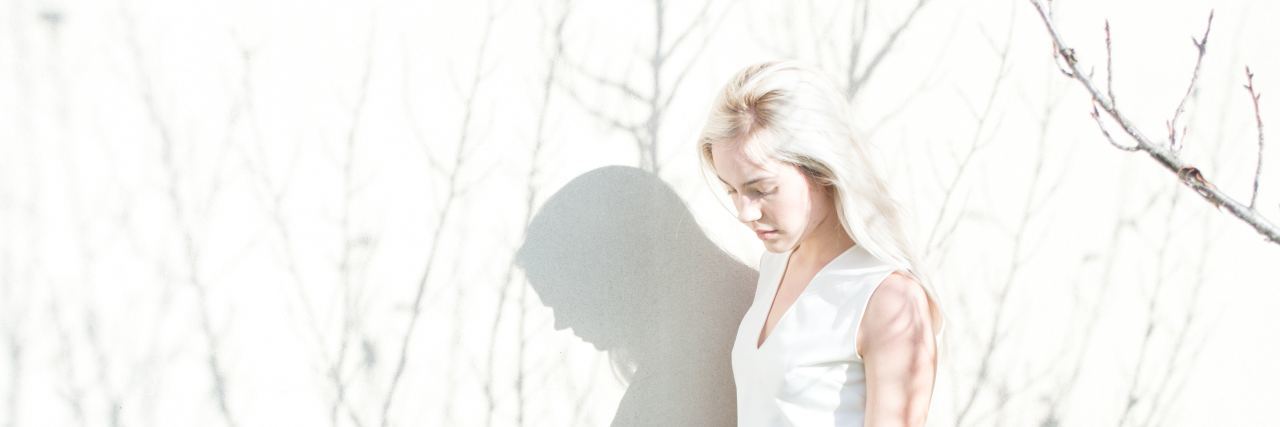It’s December of 2010. I’m at the edge of 20 and my mind is slowly beginning to unravel. What I know is that a few days ago I was fine, but something changed — a switch inside my head has been flicked and now I am descending.
• What is Bipolar disorder?
I was living, breathing, talking and functioning within the boundaries that had been laid out before me. But that was then, and the line that separated me from the eye of the storm has been washed away, and as a consequence, I am at its mercy.
For weeks without end I am ripped apart by the current. I am happy. I am sad. I am ecstatic. I am distraught. I am full of life and running around my backyard, singing “Don’t Stop Believing” at the top of my lungs. And then everything turns upside down and I am barricaded in my room, on my knees, sobbing because everything around me has fallen apart. The ground no longer wants to hold me up and my thoughts begin to turn on themselves. The shift has started and there is nothing to do but let it run its course, because no matter what I do to try and numb myself, it will come back with more force than when it started.
It is in these pockets of unparalleled chaos that I understand how sick I am. It’s in these moments where I succumb to the worst of myself. The downward shift opens up a floodgate of self-doubt and self-defeat. Nothing I do can or will be good enough — I’ve lost even before making the attempt to try.
I cling on to the hope that I can live that extra minute, walk that extra mile, no matter how hard or hopeless it may seem. Because truthfully, hope is usually the one thing that’s left after the highs and lows have taken you hostage and left you stranded, cold and sullen inside darkness that will eventually subside, but not before it shows you the damage it caused. The damage “you” caused.
I sit in the garage of my friend’s house and I bang away on the keyboard I bought more than a year previous. This is where I find my hope. This is where I have allowed that hope to exist, when I can no longer carry it with me in my head or in my heart. When my hands can barely make it across the keys, the disorder gives me a subtle push, a reminder to me that it’s always lurking there, pulling strings that can either help or hinder me. I leave it here and pick it up when I need it to the most.
For the next few weeks I will go to work and I will come home like clockwork. From the time I get to work I will only respond to my co-workers with nods of the head, small gestures of the hand and assurances that I will get my work done in a timely manner. They do not see that even though they are speaking, my mind is on autopilot, their words entering my ears like molasses, but leaving like scattered, subtle bursts of a 12-gauge.
I’ll barely remember a word that was said to me. The customers I deal with on a daily basis will become a mixture of dialogue and blank faces, each one becoming less detailed than the last. It all becomes a unanimous blur. I’m sure I smiled. I’m sure I put on a face of charisma and joy, but they will never see the pain that is hiding underneath me. The pain waiting for the day to be over so it can let itself out into a bottle of wine.
I do not want to live this way, I do not want to feel this way, but it’s the only way I know how. By the time I get home there will barely be anything left of me, of my psyche, of the way I interact with the world. I will be a skeleton with no frame. And it’s that skeleton who will have just enough strength to reach toward one last thing. Hope. It’s what I need the most.
The hope that tomorrow I can get out of bed. The hope that maybe by the end of the week the storm inside will begin to recede and I’ll no longer be trapped in the center. The hope that I will have a future a year from now. Two years from now. Five years. It’s the hope of believing I will make it, even when it seems like there is no way forward. Hope won’t always have my back and I’m OK with that. But what hope will always do is provide another way forward. Another reason to wake up. To be alive. Despite what many think, there is hope in bipolar disorder.
Follow this journey here.
Getty image via Drew Patrick Miller

